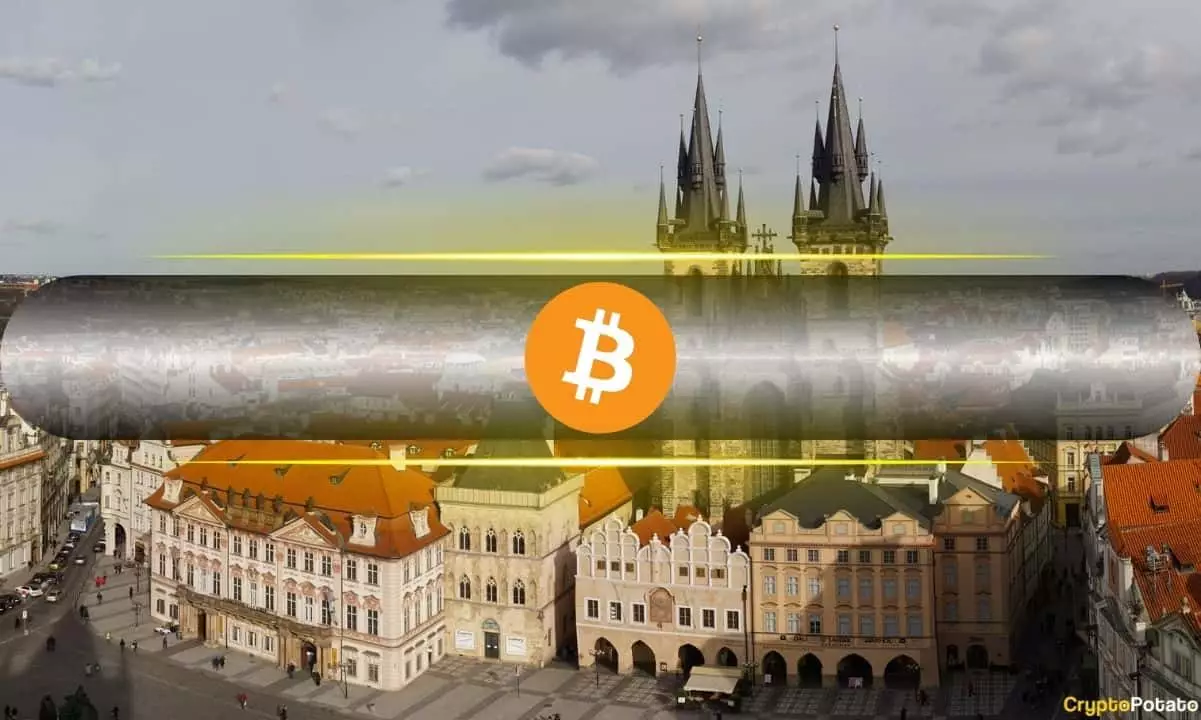As the world grapples with economic uncertainties and the ramifications of traditional financial systems, countries across the globe are starting to look toward Bitcoin as a possible alternative reserve asset. This development is noteworthy, as it reflects a significant paradigm shift in how governments perceive cryptocurrencies. The Czech Republic, through its central bank, has recently signaled an interest in Bitcoin for diversification purposes in its foreign currency reserves, joining a growing list of nations contemplating similar strategies.
Aleš Michl, the governor of the Czech National Bank (ČNB), has raised the idea of acquiring “a few Bitcoin” to help stabilize the national reserve. While he emphasized that this would not lead to a considerable investment, it does highlight a critical moment; this is perhaps the first inkling of an official acknowledgment of Bitcoin as a legitimate asset worth considering alongside traditional forms of currency. However, any acquisition would be subject to internal governance processes, requiring approval from the ČNB’s board.
The shifting political landscape in the United States illustrates a broader acceptance of Bitcoin. The election of Donald Trump in November 2024 marked a surprising turn for the cryptocurrency narrative; once a vocal skeptic, he has now embraced Bitcoin as a potential strategic asset. This newfound support includes proposals for the establishment of a U.S. Bitcoin reserve to bolster economic resilience. Advocates argue that Bitcoin’s capped supply makes it a viable hedge against inflation and a depreciating dollar. Notable proponents, such as Senator Cynthia Lummis, have been vocal about integrating Bitcoin into national reserves as a forward-thinking economic strategy.
Challenges to this notion abound, particularly from critics within Congress who highlight potential financial risks. Nevertheless, the ongoing dialogue hints at a burgeoning acceptance of Bitcoin within the corridors of power, paving the way for a potential future where cryptocurrency plays a crucial role in national financial health.
Switzerland stands poised to take significant strides in this arena, as discussions arise regarding the inclusion of Bitcoin as an official reserve asset. The Swiss National Bank’s exploration of Bitcoin’s integration alongside gold is particularly telling, given Switzerland’s history as a financial innovation hub. This potential referendum could set a precedent globally; becoming the first nation to officially recognize Bitcoin as an asset within its reserves would send shockwaves through international financial markets.
Other countries are also contemplating Bitcoin’s inclusion in their financial frameworks. Germany is witnessing discussions led by figures like former Finance Minister Christian Lindner, who advocates for reducing dependency on the U.S. dollar through Bitcoin adoption by the European Central Bank. Similarly, legislators in Hong Kong are pushing for incorporating Bitcoin into regional reserves, with voices like Wu Jiezhuang supporting this initiative as a way to enhance economic resilience.
Moreover, Russia is moving forward with concrete plans to utilize Bitcoin and other cryptocurrencies in international transactions as a measure to counteract Western sanctions, indicating a bold strategy to reduce reliance on the dollar and enhance financial independence. These varied international efforts underline a significant trend: countries are increasingly recognizing Bitcoin’s potential as a legitimate asset worthy of consideration in their national reserve strategies.
The growing acceptance of Bitcoin as a national reserve asset reflects a shifting paradigm in economic strategy among nations. As discussions proliferate, both supporters and skeptics will need to address the implications of such shifts. While Bitcoin holds promise, it also presents challenges that require careful examination. The path forward will likely be marked by debates over regulations, stability, and the overall impact on global financial systems—all of which will play essential roles in determining Bitcoin’s future as a reserve asset.


Leave a Reply